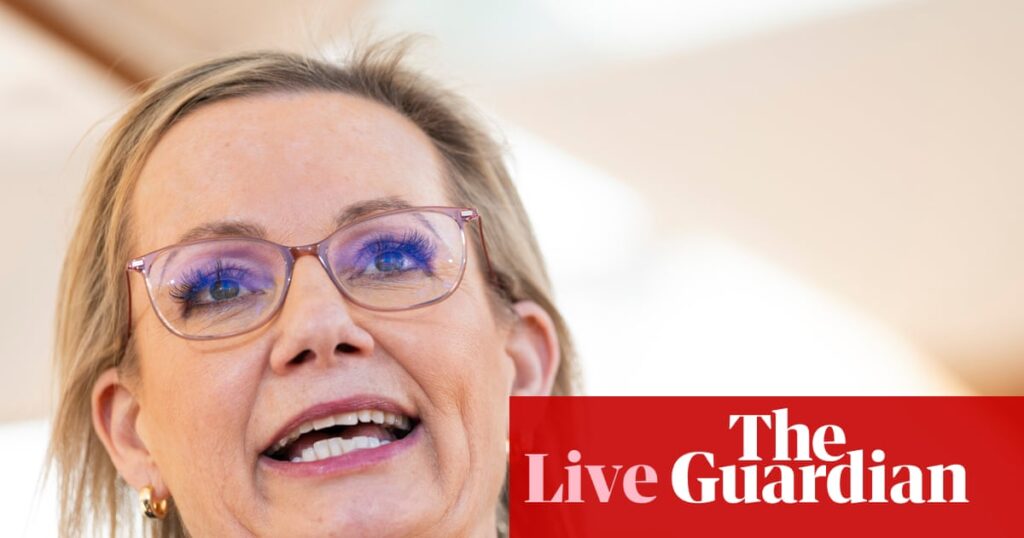
Australia finds itself at the crossroads of significant political and legal challenges as key events unfold across the nation. From a controversial anti-protest law being struck down in New South Wales to looming social media restrictions for teenagers, the country is witnessing a dynamic political landscape. Meanwhile, the opposition leader Sussan Ley challenges Prime Minister Anthony Albanese over his upcoming meeting with former U.S. President Donald Trump, urging concrete outcomes on critical issues.
NSW Anti-Protest Law Declared Unconstitutional
The New South Wales Supreme Court has struck down a contentious anti-protest law granting police broad powers to issue move-on orders near places of worship. The ruling has sparked a debate on the balance between community protection and freedom of expression. Sarah Schwartz, a legal director at the Human Rights Law Center, emphasized the importance of strengthening democratic rights, stating,
“The right to protest is really fundamental to our democracy.”
Following the judgment, NSW Premier Chris Minns stated that the government would take time to consider the ruling, noting that the decision did not affect the section of the law criminalizing harassment near places of worship.
Political Ramifications and Reactions
The law’s political origins are under scrutiny, with Labor MP Stephen Lawrence criticizing the expansion of police powers as based on a “big lie” concerning an alleged antisemitic protest. Lawrence highlighted the peaceful nature of the protest, which targeted an Israeli military event rather than a religious gathering.
Liberal Party’s Internal Dynamics and Policy Direction
Amidst these developments, the Liberal Party faces its own challenges. Jane Hume, a federal Liberal senator, emphasized the need for renewal within the party while maintaining experienced leadership. She dismissed claims of Melbourne being Australia’s “crime capital” as merely stating the obvious, while advocating for federal involvement in state crime issues.
Hume’s comments come as the party grapples with its identity and policy direction, with backbencher Andrew Hastie’s remarks about Australians feeling like “strangers in their own home” raising concerns about alienating multicultural communities.
Controversies and Legal Challenges in Parliament
The Australian parliamentary landscape is further complicated by an independent report revealing “multiple procedural failures” in a $315,126 retirement payment to a senior parliamentary official. The report identified conflicts of interest and procedural lapses within the Department of Parliamentary Services.
In another legal controversy, Senator Jacqui Lambie accused a parliamentary committee of conducting a “stealth hearing” on changes to freedom of information legislation, highlighting the absence of key transparency advocates from the process.
Social Media Ban and Pro-Palestine Protests
On the policy front, education ministers are preparing for a world-first ban on social media for teenagers, set to take effect in December. The initiative aims to protect minors online, with federal and state officials collaborating to enforce the restrictions.
Meanwhile, Melbourne’s pro-Palestine rallies, which have drawn significant attention, will pause following a ceasefire between Israel and Hamas. The decision reflects a temporary halt in activism, with organizers acknowledging the cessation of hostilities.
Looking Ahead: Political Engagement and International Relations
As Prime Minister Anthony Albanese prepares for his meeting with Donald Trump, opposition leader Sussan Ley has called for tangible outcomes on key issues such as the Aukus agreement and trade tariffs. Ley stressed the importance of the meeting being more than a photo opportunity, urging the Prime Minister to deliver results for Australia.
The political and legal challenges facing Australia underscore the nation’s complex landscape, where policy decisions and international relations continue to shape the future. As these events unfold, the implications for democratic rights, party dynamics, and global partnerships remain critical areas of focus.





